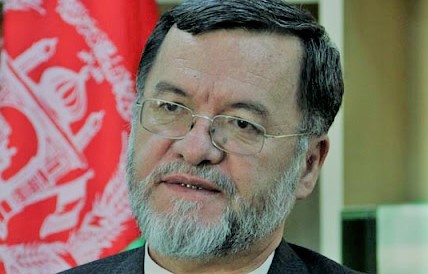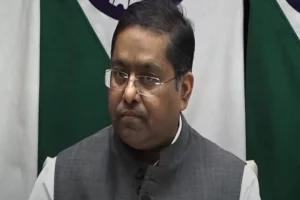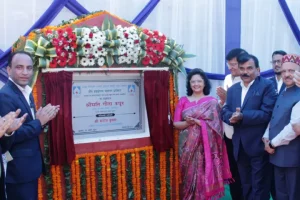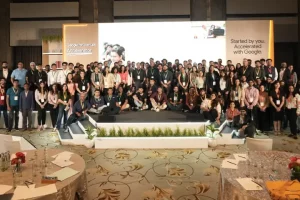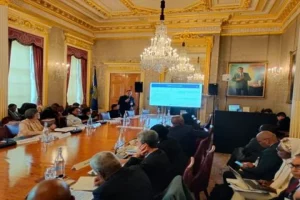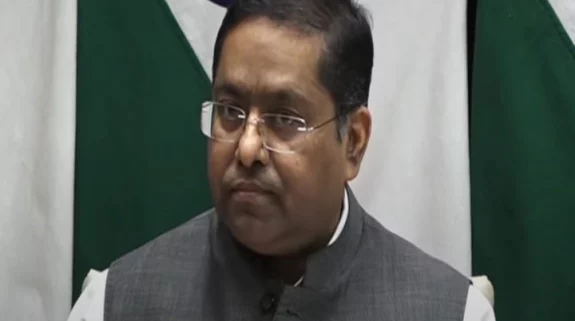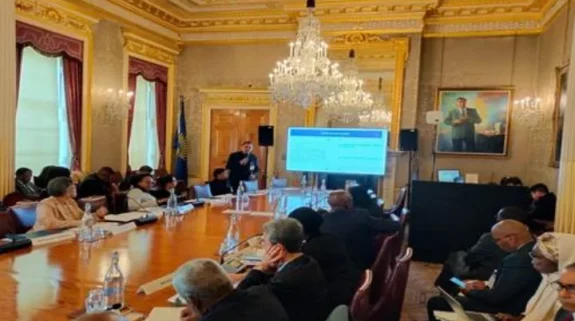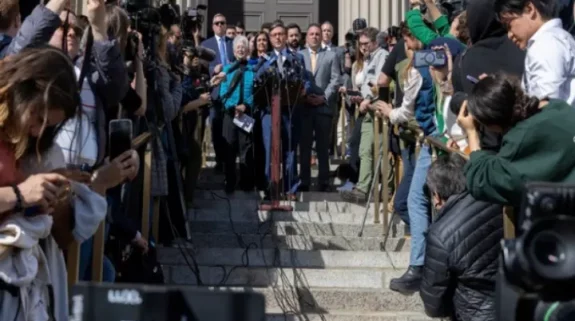Afghanistan’s second Vice President, Mohammad Sarwar Danesh, has apologised to Afghan Sikhs and Hindus for the atrocities by the people of his country towards them, saying he was ashamed and shocked by what had happened.
“We are proud of you and your high human thought and patriotism. Afghanistan is home to all citizens of this country Muslims, Sikhs and Hindus,” Danesh told the MP Dr Anarkali Kaur Honaryar who is a member of Afghan Sikh community.
Mohammad Sarwar Danesh said he had ‘seen and heard, Anarkali Henriyar's "tears" and "hate speech" on social media about discrimination. "Upon hearing the trembling sound and seeing the rolling drops of your tears, we all wept and we trembled and were ashamed of what happened to you and your peers," he added.
Dr. Anarkali Kaur Honaryar is the first non-Muslim member of the National Assembly of Afghanistan. She is also a women's rights activist and a dentist as well as a medical doctor.
Last week, the Avicenna International Peace Award: Intercultural Cooperation for Peace” awarded the Ibn-e-Sina award to Dr. Anarkali Honaryar for her contribution to human rights in Afghanistan.
Honaryar's story comes in the backdrop of the increased conflict in the war-torn country. In March last year, militants had attacked the Guru Har Rai Sahib Gurudwara in Kabul, killing 25 Afghan Sikhs and injuring eight. The gunmen went from room to room firing till Afghan security forces launched a counter attack and killed the attackers. A day later, the grieving Sikh families were attacked once again when they were cremating their dead, disrupting funeral services.
The attack spread fear among the Sikhs as well as Hindus in Afghanistan. In a matter of months people from both communities left the country. Most shifted to India while a few sought asylum in the West.
“I am called Indian. Even my colleagues who know me very well, ask me questions about India and say you know India more,” says senator Anarkali Kaur Honaryar who is an active member Afghan Sikh community, “but I am Afghanistani and love my country and country-fellows despite the discriminatory behaviour from them. Most people call me Indian citizen, while I have visited India only a couple of times,” she said.
She was in tears while narrating her experience, “Even my neighbours do not have good relations with my family.”
Honaryar’s words were followed by reactions in the social network in Afghanistan. Some people expressed sympathies with her and apologized for what other Afghans did to the Sikh and Hindu compatriots.
Anarkeli Kaur Henryar was born in Kabul, Afghanistan. She graduated with honors from Afghanistan University as a dentist. During the Taliban era, women were not allowed to work or study but she persisted, and worked as a vaccinator at a hospital. When she was expelled for being a Sikh, she decided to champion the cause of women’s rights. After the defeat of the Taliban, Dr. Honaryar was nominated as a member of the Grand Council, the Loya Jirga. In 2011, she was honored with the UNESCO-Madanjeet Singh Prize for the Promotion of Tolerance and Non-Violence.
She wanted to be a pilot as a child, but has now been recognised as a leading campaigner for the rights of Afghan women.
"It is difficult for a woman to be a pilot in Afghanistan. My father said it does not fit in with this country's culture," Dr Anarkali Kaur Honaryar told the BBC Urdu.
"Some people still think we are foreigners. They think we are Indians who are working and living here for a while. But we are Afghans too, and we should have all the rights and opportunities that other Afghans have," she said.
She has grown up in turbulent times. In the early 1990s, Afghanistan was a country at war, with no stable central government. The provinces, including Dr Honaryar's native Baghlan in the north, were ruled by warlords. To make matters worse, parts of the country were falling into Taliban hands. Girls' schools were banned in Taliban strongholds and religious minorities felt threatened by their extremist Sunni Muslim ideology – Dr Honaryar fell into both categories – a female and a non-Muslim.
Fortunately for her, Baghlan did not come under Taliban rule.
She carried on her education. Once the Taliban were overthrown in 2001, Honaryar went to Kabul University to study medicine. She was part of the loya jirga (grand council) that selected the interim government to replace the Taliban.
Hindus and Sikhs have lived in Afghanistan for centuries. Before the 1970s, about 250,000 Sikh and Hindu families lived in several Afghan cities, but their migration began during the civil war and continues to this day. Less than a 100 families are now left in Afghanistan.






